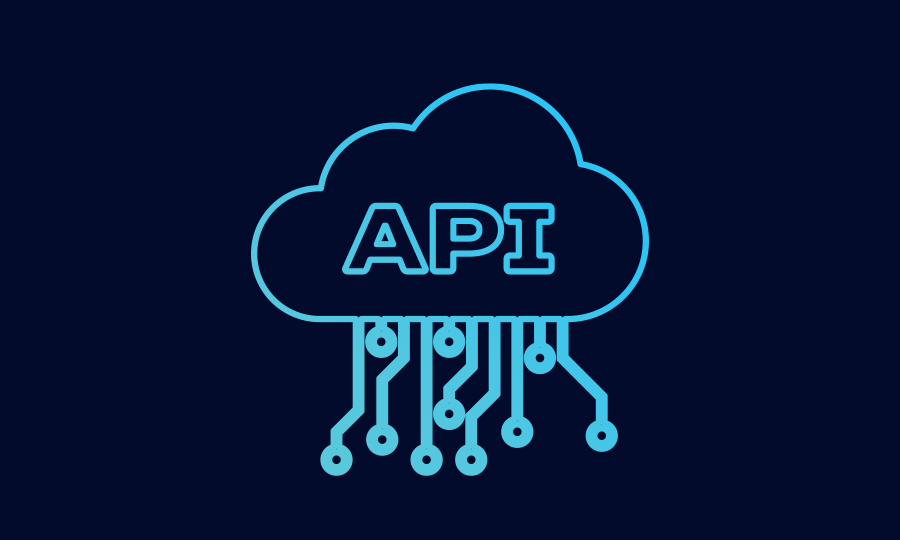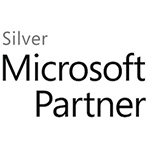Amplify the collective power of your information systems with application integration and API integration.
The Power of Connectivity
Practically every organization has multiple but separate information systems, each of which holds valuable company information. While these systems provide significant value on their own, the power of each system is limited by the scope of its own information and its vendor’s focus.


Extensive Platform Experience
When building enterprise solutions, many clients require integration from existing vendors. We have experience integrating solutions on existing platforms including Salesforce, Infor, JD Edwards, Active Directory (LDAP), SAP ERP, SAP HANA, Oracle, Okta, Epic, Cerner, All Scripts, MartizCX, and more.
Application Integration Solutions include:
- Enterprise Resource Planning (ERP) software
- Customer Relationship Management (CRM) software
- Human Resources (HR) software
- Operational and administrative software, such as Microsoft Office 365
- Authentication layers
API Integration
API Integration provides a seamless connection between a wealth of cloud-apps, on-premise software, and your data. As the need for digitized services and mobile apps rise, so will your dependency on well-executed API integrations.
Integrations have always been a part of Chateaux’s service offerings.
Our rich history in this space allows us to confidently evaluate requirements and guide clients to understand which providers will work best for their needs.

Here are some of the API Integrations we’ve worked on recently:
Payment Gateway Integration
Valuable to any company requiring payment transactions, including fintech and e-commerce
Any business that needs to make quick, secure monetary transactions between a customer and merchant (or merchants*) will benefit from a third-party, payment gateway integration.
A payment-gateway securely authorizes transactions, eliminating the need (and time required) for business owners to validate each and every transaction and check for fraud. In addition, user experience is also enhanced with features such as storing customer card details, maintaining recurring payments, and handling disputes. Payment gateway integrations are fairly common, and we have experience supporting both REST APIs and SOAP protocol integration, including processors such as WorldPay, Authorize.net, and Chase Paymentech.
*A new approach to payment authorization integration is network-based payments—something we have implemented for a variety of clients using Stripe Connect.
With Stripe Connect, multiparty payments are possible. An example of this would be a food delivery service that takes payment from a customer to pay a driver and a restaurant simultaneously, thus distributing the payment to multiple service providers through network-based payments. This kind of integration is developed with greater complexity since it must integrate with many systems.
We will evaluate and guide clients to understand how their use case pairs with available features of payment gateway options. Our experience working with plugins for mobile and web app integration, as well as integrating into native mobile applications and back office systems, makes us adept at delivering these integrations.
Use cases include Stripe implementation for a blockchain-based mobile ticketing app and a blockchain-powered smart grid exchange
eSignatures
Valuable across all industries
eSignatures allow parties on opposite sides of the globe to sign agreements and enter into binding contracts. From saving time, physical resources, and money, to enhancing security, they have revolutionized the way agreements are able to be made.
Integrating an eSignature solution such as DocuSign or Hello Sign into your applications allows you to use a custom user interface (UI) when interacting with the tool. No need to sign in and out of different programs. Using an eSignature integration, you can fully utilize the tool and all its functions with the UI of which you are accustomed.
Use cases include eSignature implementation for asset and ownership transfers for an investment firm
Credit Checks
Essential in the financial sector, but applicable across all industries
Many industries use credit checks in one form or another. Whether it’s to check a potential employee, approve an individual for a loan or rental, or for purchasing a car, there are so many applications. However, as a business carrying out these checks, the process can be time consuming.
Utilizing a credit check verification platform and integrating with internal IT systems or consumer application makes the experience seamless and reduces the information processing time. Not only does this save valuable time, but when installed as a Function as a Service (FaaS), the infrastructure build can reduce costs.
Chateaux has experience managing credit check integration with some of the leading credit reporting firms including Experian and Equifax’s PayNet.
Use cases include Experian implementation for customer verification for an equipment leasing company
KYC Platforms (Know Your Customer) Platforms – Compliance for Anti-Money Laundering policies
Industry: Fintech
Financial institutions use KYC Platforms to facilitate identity verification, including document verification and biometric analysis, necessary to meet regulatory compliance. This verification safeguards against fraud, money laundering, and other malicious uses of transaction applications, creating a more secure userbase overall.
KYC Platforms are challenging to create and determining which platform to use can be daunting. Every KYC option has a different way of communicating with integration platforms, such as XML, O-Auth, REST and webhooks. And each platform provides different service options that may or may not fit a client’s needs, such as real-time response time, accuracy level thresholds, or anti-money laundering (AML) requirements.
We have analyzed the world’s top ten KYC platforms, including IdentityMind, Jumio, Trulioo, AU10TIX, and Onfido. We will evaluate your needs and determine the most cost-effective platform that serves your requirements. We can implement KYC Platforms that use document verification, enterprise, or biometric validation.
Use cases include KYC implementation for a blockchain-based trading application and for a private liquidity firm handling private, high-value transactions
If you have been eyeing other API integrations, we can help! We have experience implementing API integrations for:
- Mail and text (SMS) integration
- E-commerce partner integration
- Single sign-on
- Social media
- Marketing automation
- And more!
Here are some of the API Integrations we’ve worked on recently:
Valuable across all industries
eSignatures allow parties on opposite sides of the globe to sign agreements and enter into binding contracts. From saving time, physical resources, and money, to enhancing security, they have revolutionized the way agreements are able to be made.
Integrating an eSignature solution such as DocuSign or Hello Sign into your applications allows you to use a custom user interface (UI) when interacting with the tool. No need to sign in and out of different programs. Using an eSignature integration, you can fully utilize the tool and all its functions with the UI of which you are accustomed.
Use cases include eSignature implementation for asset and ownership transfers for an investment firm
Valuable to any company requiring payment transactions, including fintech and e-commerce
Any business that needs to make quick, secure monetary transactions between a customer and merchant (or merchants*) will benefit from a third-party, payment gateway integration.
A payment-gateway securely authorizes transactions, eliminating the need (and time required) for business owners to validate each and every transaction and check for fraud. In addition, user experience is also enhanced with features such as storing customer card details, maintaining recurring payments, and handling disputes. Payment gateway integrations are fairly common, and we have experience supporting both REST APIs and SOAP protocol integration, including processors such as WorldPay, Authorize.net, and Chase Paymentech.
*A new approach to payment authorization integration is network-based payments—something we have implemented for a variety of clients using Stripe Connect.
With Stripe Connect, multiparty payments are possible. An example of this would be a food delivery service that takes payment from a customer to pay a driver and a restaurant simultaneously, thus distributing the payment to multiple service providers through network-based payments. This kind of integration is developed with greater complexity since it must integrate with many systems.
We will evaluate and guide clients to understand how their use case pairs with available features of payment gateway options. Our experience working with plugins for mobile and web app integration, as well as integrating into native mobile applications and back office systems, makes us adept at delivering these integrations.
Use cases include Stripe implementation for a blockchain-based mobile ticketing app and a blockchain-powered smart grid exchange
Essential in the financial sector, but applicable across all industries
Many industries use credit checks in one form or another. Whether it’s to check a potential employee, approve an individual for a loan or rental, or for purchasing a car, there are so many applications. However, as a business carrying out these checks, the process can be time consuming.
Utilizing a credit check verification platform and integrating with internal IT systems or consumer application makes the experience seamless and reduces the information processing time. Not only does this save valuable time, but when installed as a Function as a Service (FaaS), the infrastructure build can reduce costs.
Chateaux has experience managing credit check integration with some of the leading credit reporting firms including Experian and Equifax’s PayNet.
Use cases include Experian implementation for customer verification for an equipment leasing company
Financial institutions use KYC Platforms, or Know Your Customer Platforms, to facilitate identity verification, including document verification and biometric analysis, necessary to meet regulatory compliance. This verification safeguards against fraud, money laundering, and other malicious uses of transaction applications, creating a more secure userbase overall.
KYC Platforms are challenging to create and determining which platform to use can be daunting. Every KYC option has a different way of communicating with integration platforms, such as XML, O-Auth, REST and webhooks. And each platform provides different service options that may or may not fit a client’s needs, such as real-time response time, accuracy level thresholds, or anti-money laundering (AML) requirements.
We have analyzed the world’s top ten KYC platforms, including IdentityMind, Jumio, Trulioo, AU10TIX, and Onfido. We will evaluate your needs and determine the most cost-effective platform that serves your requirements. We can implement KYC Platforms that use document verification, enterprise, or biometric validation.
Use cases include KYC implementation for a blockchain-based trading application and for a private liquidity firm handling private, high-value transactions
- Mail and text (SMS) integration
- E-commerce partner integration
- Single sign-on
- Social media
- Marketing automation
- And more!
The
Chateaux
Advantage
in Application & API Integration
- 20+ years of API integration experience
Deep knowledge of KYC, Payment Gateway, Credit Check, and eSignature integration platforms
Multiple provider experience in each domain
Experience with web and mobile app development, a key component to API integration
Microservices expertise, to help you manage multiple integrations seamlessly











